Sovereignty vs rangatiratanga: wars, laws and policies
This entry recommends websites where you can find information about the impacts of land laws on Māori, the New Zealand Wars, and attempts by Māori to find justice and build a relationship with the Crown.
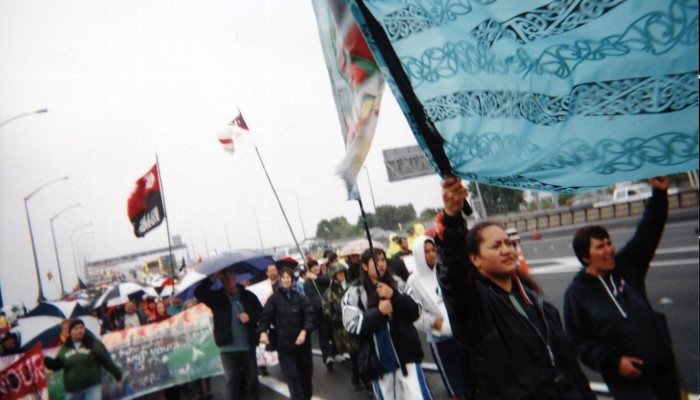
Image: Hikoi marching over the Auckland Harbour Bridge from Northcote by Judith Waaka. Collection: Auckland Libraries Heritage Collections N0111080
Keywords
Here is a list of some keywords on laws, wars, people, and movements to help search the topic sovereignty vs rangatiratanga. Use this list when searching the collections and websites in this entry.
Te Tiriti o Waitangi | The Treaty of Waitangi: Signed in 1840 between Māori chiefs and the British Crown.
Apihai Te Kawau (Ngāti Whātua): Rangatira (chief) who signed Te Tiiriti o Waitangi on 20 March 1840 at Manukau Harbour.
New Zealand Wars | Ngā Pakanga o Aotearoa (1840s to 1870s): A series of battles fought between colonial forces and Māori.
Kīngitanga (also spelt Kiingitanga): The Māori King movement founded in 1856. Waikato chief Pōtatau Te Wherowhero was nominated as king at Ngāruawāhia.
New Zealand Settlements Act 1863: The law allowed for land confiscations (raupatu) from iwi who were said to be in rebellion against the Queen.
Public Works Lands Act 1864: This allowed land owned by Māori and Pākehā to be taken over by the government (sometimes without payment) to construct roads, railways and public works.
Native Land Court: Established by the Native Land Acts of 1862 and 1865, it freed up more Māori land for purchase by settlers.
Kauhanganui parliament: King Tāwhiao established the kauhanganui (Kīngitanga parliament) in 1890.
Kohimarama conference: Organised by Paora Tūhaere, the Māori kotahitanga (parliamentary) movement was held in 1879 at Ōrākei in Auckland in a house called Kohimarama.
Kotahitanga parliament (Māori Parliament): In 1892 various parliament movements came together at Waitangi as the Paremata Māori or Maāori Parliament. The first premier (pirimia) was Hāmiora Mangakāhia.
Young Māori Party: In the early 1900s a group of young Māori MPs came together to improve Maōri health, develop Māori land, and promote Māori arts and crafts.
Rātana: A religious organisation started by Tahupōtiki Wiremu Rātana, the movement became political in the 1920s.
Treaty settlements: Set up in 1975, the Waitangi Tribunal is a permanent commission to investigate and make recommendations on claims brought by Māori relating to breaches of Te Tiriti.
Whina Cooper: Famous Māori leader, most known for leading the Land Hīkoi (Land March) of 1975.
Land protests in Tāmaki Makaurau: Takaparawha Point or Bastion Point (1977-78) and Ihumātao (2016-2020).
Tips: Before searching it can be useful to come up with a list of words to use. These are sometimes called keywords or search words. They can be the name of a person, place, or event you are researching. You can leave out small words like ‘the’ and ‘of’ and just choose the main ones, eg 'Bastion Point'. We can always change our keywords or add more if we need to.
Tips: Also keep in mind that there are different names or spellings for words. Or they could have changed over time.
Auckland resources
Here are some collections from Auckland Libraries and other reliable Auckland based museums and heritage websites. They will help you find books and information on sovereignty vs rangatiratanga (authority, ownership, leadership) in Tamaki Mākaurau.
Auckland Libraries Catalogue
This catalogue from Auckland Libraries will help find books on Aotearoa New Zealand and Auckland's histories.
Search the catalogue using keywords like ‘New Zealand Wars’ or 'Waitangi Tribunal’.
You can get fewer results by using the filters under Refine by.
Select a book that interests you.
Go down the page to Edition information to check if the book can be borrowed or if it’s for In library use only.
Look further down the page to Related Resources to find other titles related to this search.
If you have an Auckland Libraries library card you can request the item to be sent to your local library.
Tips: If the status of the book is 'In library use only', it means the book can only be used in the library and can't be taken home. In this case, you will need to fill out a form or speak to a librarian about reading the book in the library.
Tips: You will find lots of books that have been written over 50 years ago. While they are good sources of information, we need to remember the context and time when they were written.
Heritage et AL
The Heritage et AL blog is written by librarians and is a useful way to find information about Auckland Libraries heritage collections.
Use the search box at the top of the page to enter 'Native Land Court' or 'Māori Land Court'.
Read the blogs Māori Land Court Minute Books - Part 1 and Takapuna: A Name for Many Things and Parihaka.
Some blog entries have links to other useful library resources such as books and podcasts.
Tips: Blogs can be good for looking at how things have continued or changed over time. Remember, stories can be told in different ways so it’s helpful to look at multiple information sources to find different perspectives.
Kura — Photographs
Browse photographs, illustrations and works of art from the 1800s to the present day.
Enter the keywords 'Native Land Court' in the search bar.
Select the image North Auckland's Native Lands: Maoris attending the Land Court at Ahipara.
Then try 'Rātana' to find the image Members of the Ratana touring party, including representatives of every tribe in New Zealand, photographed at Auckland.
The image has members of the Rātana political party who were to stand in the Parliamentary elections.
You can filter your results by using the options on the left-hand side of the page, such as Decade.
Tips: Always remember to check the copyright or usage rights of images. This will tell you if you need permission to use the image, and how to attribute the image.
Auckland Libraries - YouTube
The Auckland Libraries YouTube channel has many videos about Auckland’s heritage, recordings of library events, conversations with authors, talks, stories, activities, music and more. Some of the talks are delivered by historians on their specialist subjects.
Go to the Playlists section to browse a selection of videos.
For example, view Talking portraits - The story of Auckland playlist for a video on Apihai Te Kawau.
Or use the search feature under the Auckland Libraries title to enter the search words 'Auckland land sales'.
Watch the video called New Zealand's great marketing campaign with Tommy de Silva about the impact of land laws and land confiscation on Māori.
Tips: You will find a huge selection of videos on YouTube. We recommend you view videos from reliable sources like National Geographic, History Channel, BBC etc. These are official channels from organisations.
Tāmaki Paenga Hira | Auckland War Memorial Museum
This is one of New Zealand's significant heritage libraries. It has pictorial and art, Māori and Pacific, natural, social, and history collections. It is a great place to visit and check out exhibitions and galleries about topics involving Aotearoa New Zealand's histories.
Go to the search box at the top of the page to enter 'Bastion Point'.
Select the Image tab to view a range of images on this topic.
Then select Web and Stories to find the article Capturing conflict: Robin Morrison.
Also, try searching with 'Kīngitanga' to find the story A walk in the park.
Read the section Tōtara for Te Wherowhero about Māori King Pōtatau Te Wherowhero who lived in Pukekawa (Auckland Domain) in the 1840s and 1850s.
You can also search 'Waitangi Tribunal' to find Timeline, which covers important events such as the Treaty of Waitangi, Auckland changes hands and The Kohimararma Covenant.
Tips: Museums preserve and exhibit important cultural, artistic, historical or scientific artefacts. Some store personal collections. A lot of them have online collections and articles based on these collections.
Tūpuna Maunga Authority
The Authority looks after the ancestral mountains of Tāmaki Makaurau.
Go to the menu at the top and select to read About us and Treaty of Waitangi Settlement.
This tells us that in 2014, mana whenua iwi and hapū of Tāmaki Makaurau secured the returned ownership of Tūpuna Maunga (ancestral mountains) in Tamaki Mākaurau.
Tips: Some websites have .au, .nz, .uk or other codes in their url. This can tell you which country this website comes from eg .au is from Australia or .nz is from New Zealand. You can check the About Us link on the website for more information.
Ngāti Paoa
This is the website of Ngāti Paoa iwi.
Go to Paoatanga then select History to read about the origins of the iwi, loss of land and effort to reassert their rights.
Or look down the home page for Treaty Settlements.
You will find the Ngāti Paoa Iwi Trust Submission on the Ngāti Paoa Claims Settlement Bill.
Tips: Some websites have .iwi in their url. This tells you that the website belongs to an iwi and likely has Māori knowledge (mātauranga Māori).
Ngāi Tai Ki Tāmaki
This is the website of Ngai Tai Ki Tāmaki.
Use the tab Our Nation to find Ngāi Tai Ki Tāmaki Settlement Documents and Whānaunga iwi Settlement Documents.
Te Kāwerau ā Maki
This is the website of Te Kawerau Ā Maki.
Go to the tab Iwi | About Us.
This page briefly covers the origins of the iwi, their loss of land and the Te Kāwerau ā Maki Claims Settlement Act.
Tips: Not sure what Māori word means? You can use the Te Aka Māori Dictionary or Paekupu to search for the meaning.
AHI Auckland History Initiative
The Auckland History Initiative from the University of Auckland supports and promotes the physical and cultural histories of Tāmaki Makaurau. The stories are written by student scholars.
Search for 'Ihumātao'.
Read Unearthing the history of Ihumātao, where the land tells stories.
The story covers the evictions and confiscations of Māori land on the Ihumātao Peninsula.
Tips: These stories are reliable and trustworthy because the project is run by the University of Auckland where student researchers have the opportunity to work with leading researchers at the University of Auckland, including galleries, libraries, archives and museums.
Remuera Heritage
The Remuera Heritage was established in 2007 to recognise, protect, and preserve Remuera's natural and cultural heritage.
Go to the top of the page to select Stories.
Then select Remuera Story to read about the sale of land to the Crown.
Tips: Local heritage sites are a great way of learning about the local history and culture of a particular area as they have stories that connect the past with the present.
General New Zealand resources
The websites below belong to government agencies, national museums, archives, libraries, and other reliable sources. They will help you find information on the laws passed by the Crown that resulted in the loss of land for Māori, and the work of the Waitangi Tribunal and Te Tiriti settlements.
Te Ara: The Encyclopedia of New Zealand
Te Ara is an excellent starting point for all questions about Aotearoa New Zealand. If we look down to the bottom of the page, we can see that the website belongs to the Ministry for Culture & Heritage, so the information is well-researched and reliable.
Go to Stories A-Z and choose Auckland region.
You can also use the search box at the top of the page to enter keywords like 'land laws' and 'land confiscation'.
Then find articles like Laws affecting Māori land and Te tango whenua — Maori land alienation.
Remember to use the Dictionary of New Zealand Biography to find information on famous Māori leaders.
Te Tai Treaty Settlement Stories
This is a digital storytelling programme on Te Ara that explores the Treaty of Waitangi | Te Tiriti o Waitangi settlements and their impact. The website can be viewed in English or Te reo Māori.
Look down the page to select either Ngāti Whātua Ōrākei or Waikato-Tainui.
Then explore links such as or Ngāti Whātua Ōrākei Treaty settlement story or Waikato-Tainui Treaty settlement story
NZ History
NZ History is another great website for information about Aotearoa New Zealand. The website also belongs to the Ministry for Culture & Heritage, so the information is well-researched and reliable.
Look under the section New Zealand and War to find New Zealand's internal wars.
You will find information on the New Zealand Wars, including War in Waikato and others that involved Tāmaki Makaurau.
Tips: We like sites like this because they’re reliable. You can tell because of their web address – they have either .govt or .ac, meaning they are from government or educational organisations. They’re also New Zealand sites, so relevant for us.
Waitangi Tribunal | Te Rōpu Whakamana i Tititi o Waitangi
The Waitangi Tribunal was set up in 1975 as a commission of inquiry into Māori claims of breaches of the Te Tiriti o Waitangi and to make settlement recommendations to the Crown.
Go down the page to find Publications & Resources, then go to Resource kits.
Look for the section on Orakei.
Use the links to find The founding of Auckland, and a resource kit that details the land claim of Ngāti Whātua o Ōrākei and the Waitangi Tribunal Report.
Tips: Government websites are valuable and trustworthy. These websites are a good place for people to find out about past, current and future government plans and the role of the government to support them. It’s also a way of informing communities about services and updates.
New Zealand History Collections (BWB)
The New Zealand History Collection is a part of EPIC, a collection of reliable databases covering different topics. It has been put together, especially for New Zealand students.
Read the books Shifting Grounds: Deep Histories of Tāmaki Makaurau, Hauraki Contested, 1769-1875 and The New Zealand Wars: Ngā Pakanga o Aotearoa.
The tab Videos is a range of videos of authors who have written these books.
Tips: To get to the EPIC resources you will need a password from your school librarian first. Or you can chat with one of our AnyQuestions librarians between 1 and 6 pm Monday to Friday and they will help you online. Some EPIC databases may also be available through your public library.
Aotearoa History Show
This video podcast from Radio New Zealand tells the story of Aotearoa New Zealand from when the land was formed to today.
Look through the episodes for Season 2 Ep 6: Native Land Court, and Season 1 episodes 5: New Zealand Wars (Part 1), 6: New Zealand Wars (Part 2), and 8: Colonists & Courts.
You can either listen to the podcast or watch it as a video.
Tips: Websites that have .com or .co in the address can have good information, but you need to assess how reliable it is. Check the About us link on the website, if you can find one. That can tell you what the company’s mission and values are.
Ngā Taonga Sound & Vision
Funded by the Ministry for Culture and Heritage, Ngā Taonga Sound & Vision is New Zealand’s audio-visual archive. Their collection includes film and television, radio and sound recordings, props, posters and more from over 120 years of New Zealand’s history.
Try the keywords 'Bastion Point'.
Make sure to select View or listen online now after each search as not all items can be viewed or listened to online.
Listen to Takaparawha: Bastion Point about the eviction of Māori protesters by the police and staff from the Land and Survey department.
Next, search 'Whina Cooper' to find Faith and the Māori Land March - Whina Cooper. Part of this land march was over the Auckland Harbour Bridge.
Tips: Websites that have .org or .net in the address can have good information, but you need to assess how reliable it is. Check the About us link on the website, if you can find one. That can tell you what the organisation’s mission and values are.
Papers Past
This is a searchable collection of early NZ newspapers (19th and 20th centuries), letters, diaries, magazines and Parliamentary Papers digitised by the National Library and partners. In 2015 National Library added historic newspapers in Māori (1842 to 1935).
Go to Ngā Niupepa | Newspapers.
Enter the words 'Confiscated lands'.
Under Title select Auckland.
Then read Confiscated lands from The New Zealand Herald dated 13 April 1927.
Tips: Historical sources eg newspapers can be useful for finding different perspectives on a topic. Keep in mind that they may not fairly show a wide range of views or experiences.
NZ Electronic Text Collection
Maintained by the Victoria University of Wellington Library, these are digitised New Zealand and Pacific Island texts and material available for researchers but can be accessed by anyone.
Use the search box on the right of the page to search 'Kohimarama'.
Try the link Conference of Maori Chiefs at Kohimarama, Auckland and Proceedings of the Kohimarama Conference.
Tips: This site uses Google to search, so the results will look like a normal Google search but all the results are from the NZETC.
Books
You can also visit your local public library for books on Auckland and Aotearoa New Zealand histories. Listed below are a few titles to help you with your search for books on this topic:
The New Zealand Wars by Phillipa Werry
Te mana o te tiriti: the living treaty by Ruth Naumann, Lyn Harrison, and Frank Winiata
Shifting grounds: deep histories of Tāmaki Makaurau Auckland by Lucy Mackintosh
Fragments from a contested past: remembrance, denial and New Zealand history by Joanna Kidman, Vincent O'Malley, Liana MacDonald, Tom Roa and Keziah Wallis
SCIS no: 5496700
More about Auckland
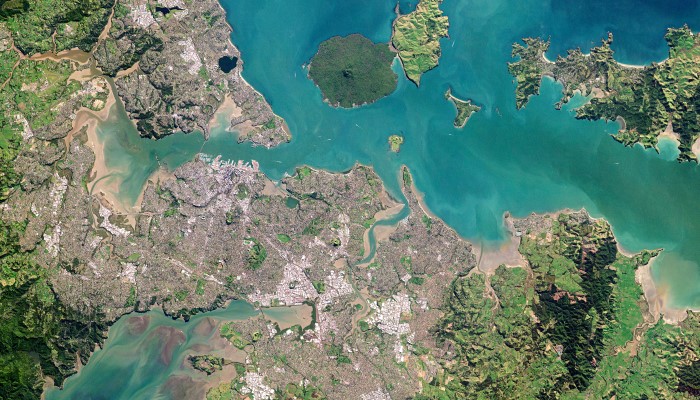
Local iwi
There are many iwi with ancestral relationships to Tāmaki Makaurau. This page lists iwi and websites which have information about their histories.
Learn about local iwi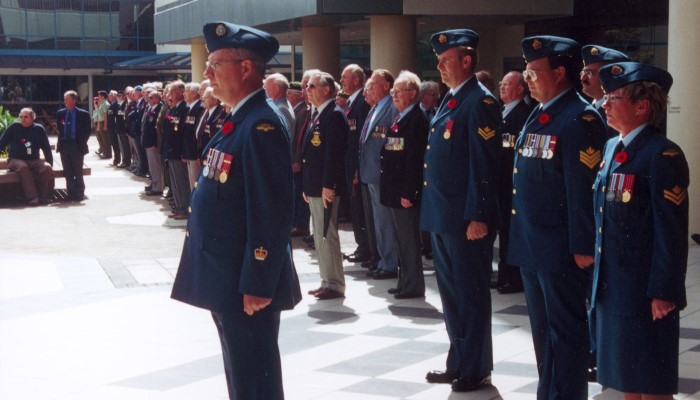
Changing views on conflict
This entry recommends resources to find out how New Zealand's involvement and views of conflict have changed over time, and how wars are commemorated. It also looks at New Zealand's work with the United Nations and current ideas of national identity.
Learn about changing views on conflict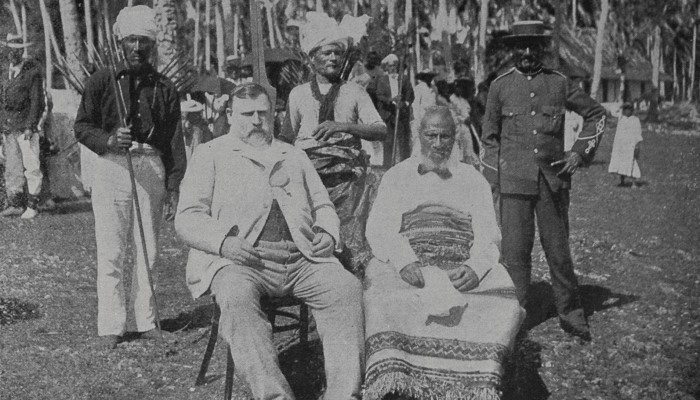
Colonial power in the Pacific
This entry has collections and websites to help explore the history of New Zealand's presence and colonial power in the Pacific. It has examples of the rise of independent Pacific nations and how they sustained their culture and presence in the Pacific.
Learn about colonial power in the Pacific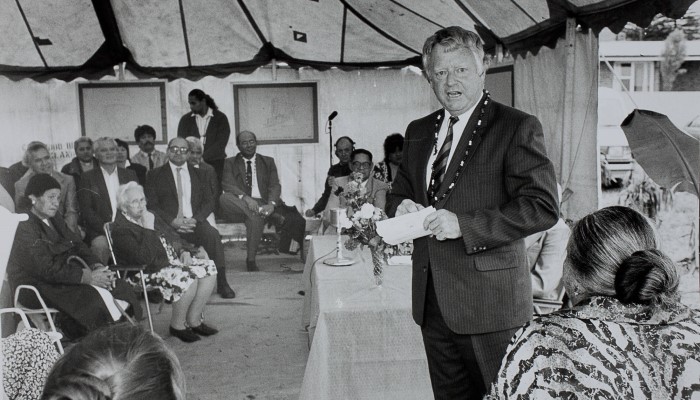
Decolonising the Pacific
This entry will help you find the best websites and collections to explore the decolonisation of the Pacific, including Aotearoa New Zealand's continued interests in the region.
Learn about decolonising the Pacific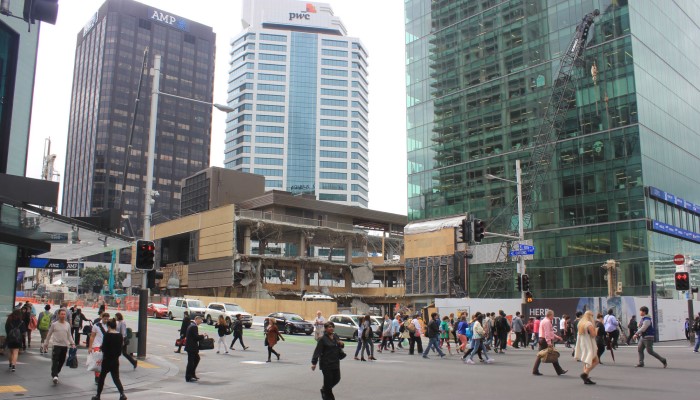
Economic independence and vulnerability
This entry will help you find information about the history behind Auckland's economic progress and independence, and the factors that impacted it.
Learn about economic independence and vulnerability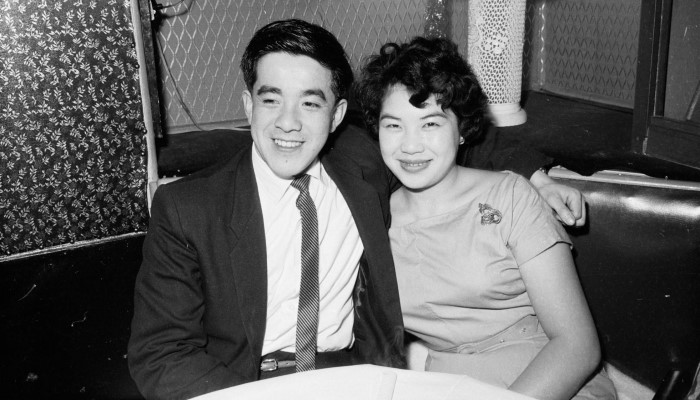
Finding a place in Aotearoa New Zealand
Since the 1700s, new people have immigrated to Aotearoa. Some came in search of a better way of life or because their country was no longer safe. Newcomers could experience racism and discrimination. They also helped shape New Zealand as a country.
Learn about finding a place in Aotearoa New Zealand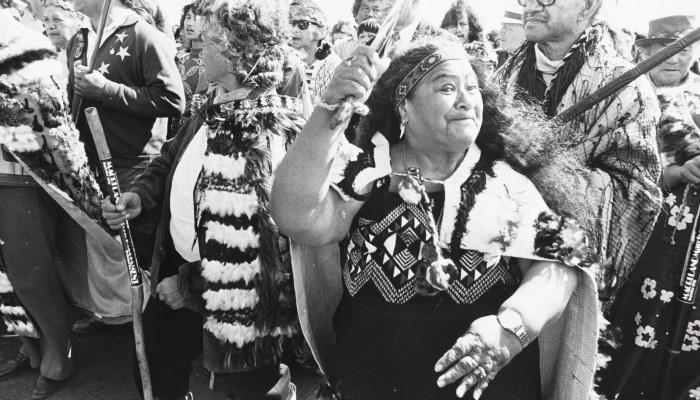
Mana in Māori society
This entry has websites to help you understand the different meanings of mana and its importance in political, social and traditional relationships in Māori society.
Learn about mana in Māori society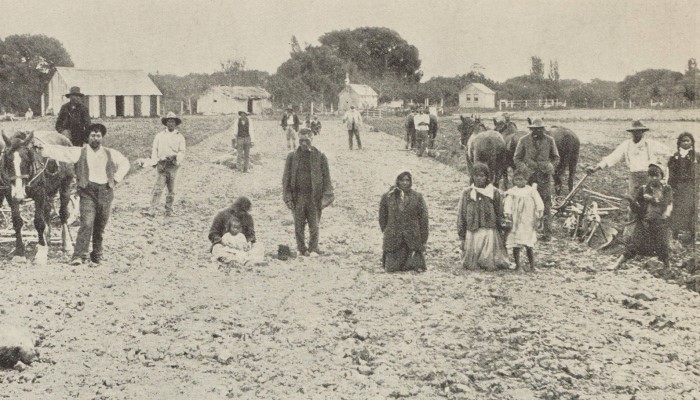
Māori economy: opportunities and challenges
This entry will help you find the best websites and databases that explore the history and development of the Māori economy including the challenges Māori faced from the New Zealand Wars, land sales and decisions made by the Native Land Court.
Learn about māori economy: opportunities and challenges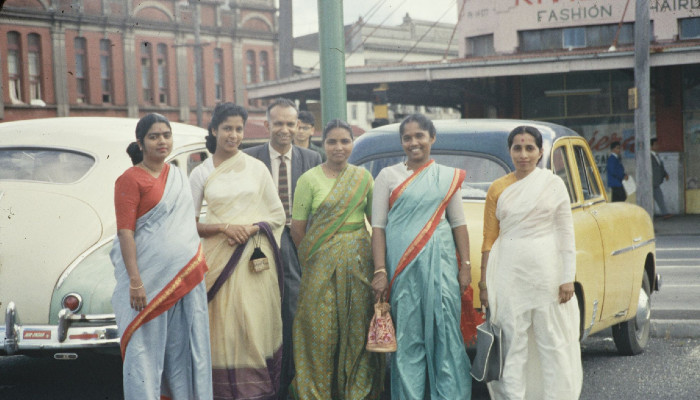
Peopling the colony: inclusion and exclusion
This entry recommends places to find information about the history of immigration to Tāmaki Makaurau and New Zealand. This includes immigration laws and changes, the role of Māori in immigration, and the government's attempt to set right past injustices.
Learn about peopling the colony: inclusion and exclusion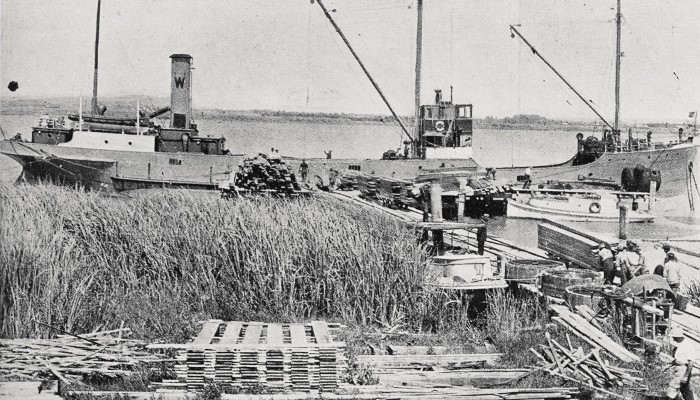
Technology and economic development
This entry will help you understand how advances in technology and land acquisition developed Auckland's economy but greatly impacted Māori and their economy.
Learn about technology and economic development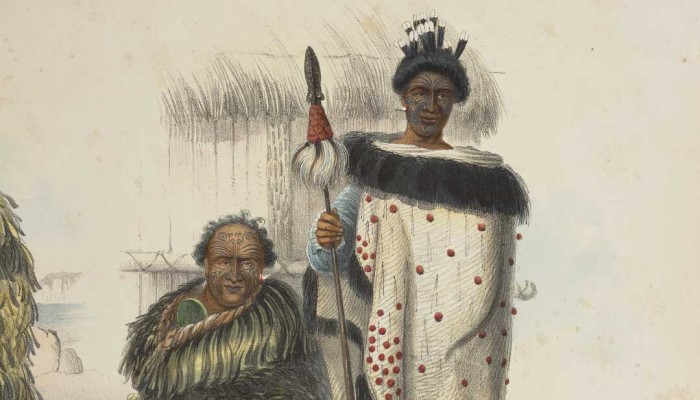
Te Tiriti o Waitangi
This entry recommends websites and collections to find information about He Whakaputanga o te Rangatiratanga o Nu Tireni | The Declaration of Independence and the Treaty of Waitangi | Te Tiriti o Waitangi, their significance, and the signatories.
Learn about te Tiriti o Waitangi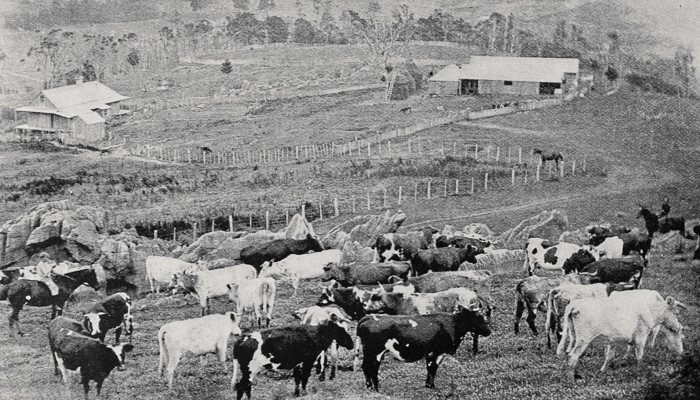
Transforming environments
This entry explores changes made by settlers to Aotearoa's natural environment, their naming of places and features, and efforts to conserve and restore its natural beauty.
Learn about transforming environments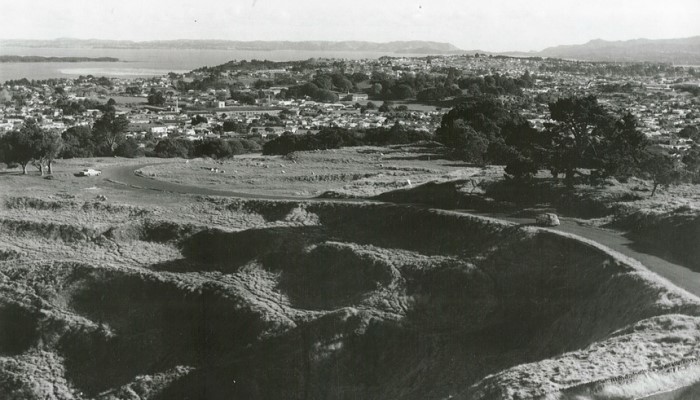
Transforming te taiao
This entry will help you find information on the changes made to the environment by pre-European Māori, and their care and connections to te taiao (the natural world).
Learn about transforming te taiao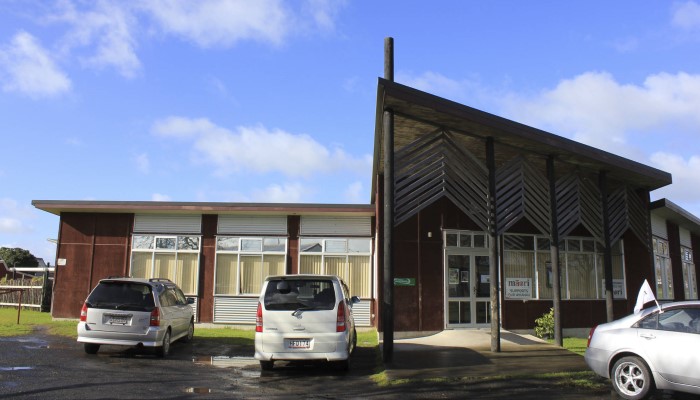
Urbanisation and being Māori
This entry will help you find information about Māori migration to cities, their challenges, and what this meant for their identity as Māori. You will also find information about some protests Māori were involved in to challenge political and social ideas.
Learn about urbanisation and being Māori
